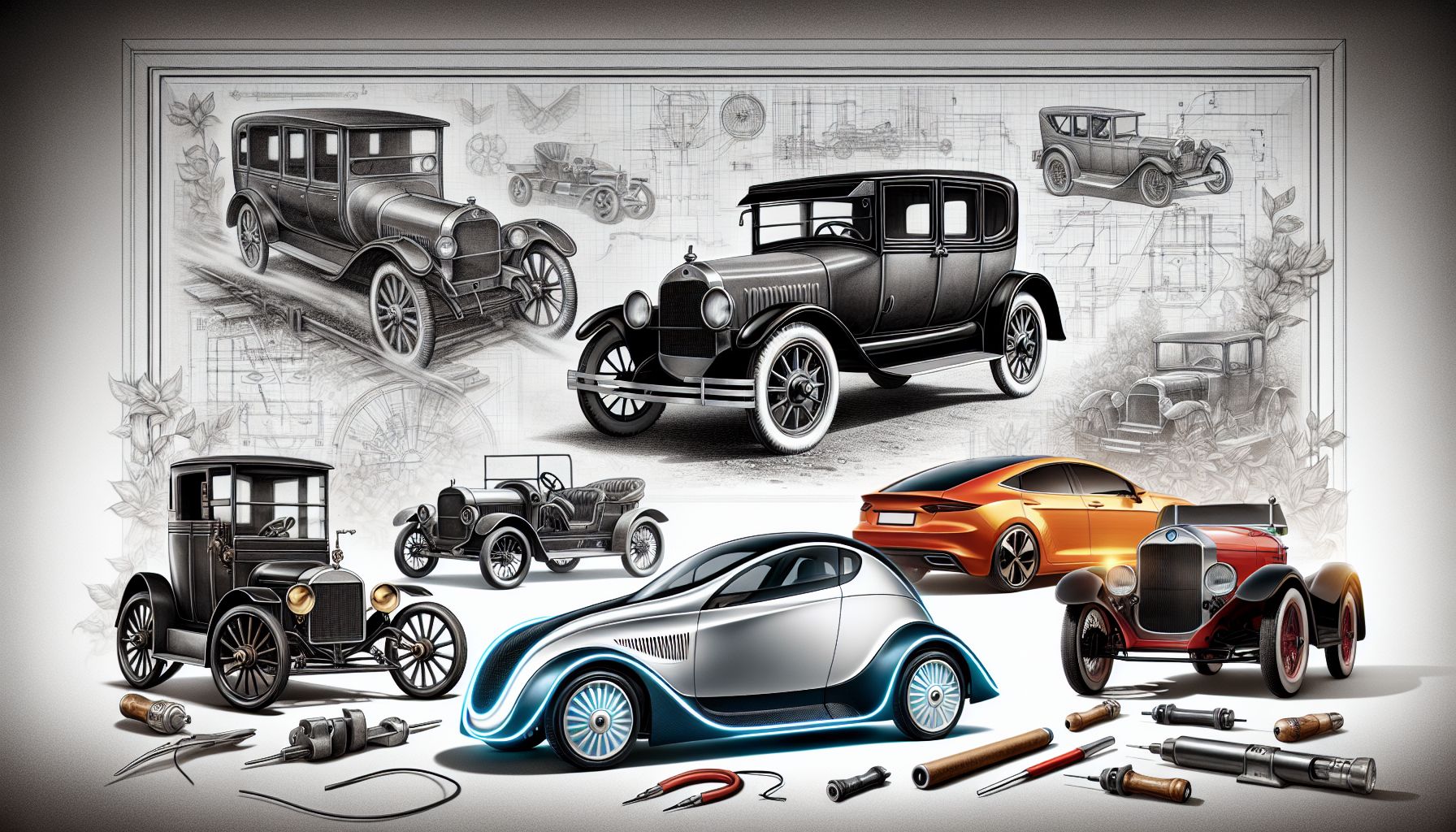📌 Let’s explore the topic in depth and see what insights we can uncover.
⚡ “Believe it or not, electric vehicles were buzzing down city streets before Henry Ford ever cranked up his first Model T. The race is back on - so buckle up as we explore the thrilling renaissance of electric cars, revealing surprising milestones and game-changing innovations in automotive engineering!”
If you’ve been keeping an eye on the automotive world, you’ll know that electric cars aren’t just a futuristic dream anymore — they’re here, they’re powerful, and they’re completely transforming the way we see transportation. The electric vehicle (EV) revolution represents a renaissance in automotive engineering, sweeping away the old and bringing in the new with a flair of innovation and sustainability. This blog post will take you on a journey through the history, present, and future of electric cars, exploring how they’ve evolved and why they’re set to be the future of the automotive industry. Buckle up, and let’s get started on this electrifying ride!
🕰️ The Dawn of Electric Cars: A Blast from the Past

Reviving the Future: Electric Cars' Engineering Evolution
Contrary to popular belief, electric cars aren’t a new invention. In fact, they were around before gasoline-powered cars! In the late 1800s and early 1900s, electric vehicles were quite popular, especially among urban dwellers. They were silent, didn’t emit foul-smelling exhaust, and didn’t require the strenuous manual cranking to start like their gasoline counterparts. But then came Henry Ford’s Model T, a cheap and mass-produced gasoline car, which effectively sidelined electric cars for almost a century. The discovery of vast oil reserves around the same time further tilted the scales in favor of gasoline cars. Electric cars, however, were not destined to remain in the shadows forever. Fast forward to the 21st century, and they’re back with a vengeance.
⚡ The Revival: Modern Electric Cars and Their Advantages
It was the combination of increasing environmental concerns, advancements in battery technology, and a shift in consumer attitudes that acted as the catalyst for the revival of electric cars. Companies like Tesla, Nissan, and Chevrolet began to produce electric cars that were not just eco-friendly, but also stylish, high-performance, and tech-savvy. The advantages of modern electric cars are numerous. They produce zero tailpipe emissions, helping to combat climate change and improve air quality. They’re also cheaper to run and maintain, as electricity is less expensive than gasoline and electric motors have fewer moving parts than internal combustion engines. Add to this the smooth and quiet drive they offer, and it’s no wonder that electric cars are increasingly becoming the choice of the discerning driver.
🌐 The Global Electric Car Market: A Snapshot
As of 2021, there are more than 10 million electric cars on the world’s roads, up from just a few thousand a decade ago. The global electric car market is set to grow at a staggering rate, with predictions that by 2040, nearly 60% of all new car sales and a third of the global car fleet will be electric. The adoption of electric vehicles is not uniform across the globe, though. Countries like Norway and 🧩 As for China, they’re leading the way, with electric cars accounting for a significant proportion of their total car sales. Norway, in particular, is a shining example, with electric cars making up 54% of all new car sales in 2020!
🔋 The Future of Electric Cars: Challenges and Opportunities
While the future of electric cars looks bright, there are still some challenges to overcome. Range anxiety, or the fear of running out of charge before reaching a charging station, is a major concern for many potential EV buyers. However, with continuous advancements in battery technology and an increasing number of charging stations, this concern is gradually diminishing. The high upfront cost of electric cars is another hurdle. However, the dropping prices of batteries, which make up a significant portion of the EV’s cost, are expected to make electric cars as affordable as their gasoline counterparts by the mid-2020s. On the bright side, the opportunities for electric cars are immense. The advent of autonomous driving technology could further accelerate the shift to electric cars, as most self-driving cars are designed to be electric. Moreover, the integration of electric cars with renewable energy could lead to a truly sustainable transportation system, helping us move towards a greener and cleaner future.
🧭 Conclusion
The renaissance of electric cars is more than just a technological revolution — it’s a cultural and societal shift towards a more sustainable and responsible way of life. As we journey through this exciting era of automotive engineering, we’re not just witnessing the rise of a new type of vehicle, but the dawn of a new age in transportation. With electric cars, we’re stepping into a future where cars are not just means of transportation, but also powerful tools for combating climate change and preserving our planet. The road ahead is long and winding, but with every mile driven in an electric car, we’re getting closer to our destination: a sustainable, clean, and green future. Now isn’t that a journey worth embarking on?
🚀 Curious about the future? Stick around for more discoveries ahead!
